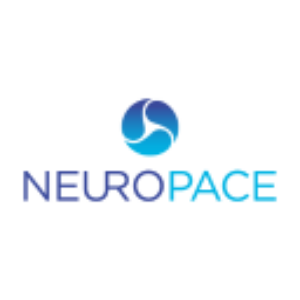NeuroPace Announces First Patient Implanted in NAUTILUS Pivotal Study for the Treatment of Idiopathic Generalized Epilepsy (IGE)
Groundbreaking NAUTILUS study will evaluate the safety and effectiveness of the RNS System to treat generalized epilepsy in patients aged 12 and older
The first procedure took place at
Idiopathic Generalized Epilepsy (IGE) is the second most common type of epilepsy, after focal onset epilepsy1. IGE accounts for between 15 to
Bonnie, who has had drug-resistant epilepsy since infancy, was the first patient treated in the NAUTILUS study. She said, “I missed a lot of school when I was younger from my epilepsy. I was held back and unable to drive. My family is always worried about me and concerned I might have a seizure. My greatest hope for the trial is to be stable enough to have a job."
“This is a groundbreaking study that could allow individuals who have drug-resistant generalized epilepsy to be treated with the RNS System. Brain-responsive neuromodulation is a proven therapy for drug-resistant focal epilepsy, with long-term studies demonstrating significant seizure reduction and quality of life improvements for patients,” said
The RNS System is the only FDA-approved brain-responsive neuromodulation system that delivers personalized, targeted treatment at the seizure source. Unlike other neuromodulation devices, the RNS System is a closed-loop technology that monitors and responds to a patient’s unique brain patterns to deliver therapy in real-time, typically before clinical symptoms occur.
The NAUTILUS Study is a prospective, multicenter, randomized, controlled pivotal study designed to demonstrate that the RNS System is safe and effective as an adjunctive therapy for primary generalized seizures in individuals aged 12 and older who have drug-resistant IGE.
In 2021, the company received Breakthrough Device Designation status from the FDA for the potential use of its RNS System to treat idiopathic generalized epilepsy. The Breakthrough Devices Program aims to speed development and assessment of devices that have the potential to provide more effective treatment or diagnosis for life-threatening or irreversibly debilitating conditions.
About Epilepsy
One in 26 Americans will develop epilepsy in their lifetime, with approximately 150,000 new cases of epilepsy diagnosed annually. An estimated 3.4 million Americans currently live with epilepsy. Epilepsy is a chronic disorder, the hallmark of which is recurrent, unprovoked seizures. More people live with epilepsy than autism spectrum disorder, Parkinson’s disease, multiple sclerosis and cerebral palsy – combined.3
About the RNS® System
The RNS® System, a paradigm-shifting treatment for drug-resistant focal epilepsy, is the only brain-responsive neuromodulation system approved by the FDA. The closed-loop technology delivers personalized, data-driven treatment targeted to the seizure source by continuously monitoring brain activity, recognizing a patient’s unique seizure pattern, and responding in real-time with imperceptible stimulation to prevent seizures. By recording ongoing EEG data, the RNS System provides physicians with a unique “window to the brain,” enabling them to remotely monitor their patients, gain insights based on brain activity, and use that information to optimize patient care. Long-term clinical studies demonstrate that the RNS System provides significant reduction in seizure frequency and enduring improvements in quality of life and cognition with no stimulation-related side effects4. The RNS System is available at most comprehensive epilepsy centers in
About
Based in
Forward Looking Statements
In addition to background and historical information, this press release contains “forward-looking statements” based on NeuroPace’s current expectations, forecasts and beliefs, including NeuroPace’s expectations and beliefs about future growth, commercialization efforts, expected returns, growth plans and revenue expectations, as well as our assumptions underlying these expectations. These forward-looking statements are subject to inherent uncertainties, risks, and assumptions that are difficult to predict, including the possibility of delays or failures associated with implementation, regulatory actions, failure to maintain or renew key customer and other business relationships, failure to maintain competitive offerings, the possibility of unfavorable results, and other risks associated with our commercialization efforts or business. You should not put undue reliance on these statements or the information presented. These and other risks and uncertainties include those described more fully in the section titled “Risk Factors” and “Management’s Discussion and Analysis of Financial Condition and Results of Operation” and elsewhere in its public filings with the
1Marini et al. 2003; Gastaut et al. 1975
2Asadi-Pooya, Emami, and Sperling 2013
3
4Nair, et al, Neurology, 2020
View source version on businesswire.com: https://www.businesswire.com/news/home/20221011005448/en/
Media Contacts:
Health+Commerce for
shay@healthandcommerce.com
Investor Contact:
investors@neuropace.com
Source:







